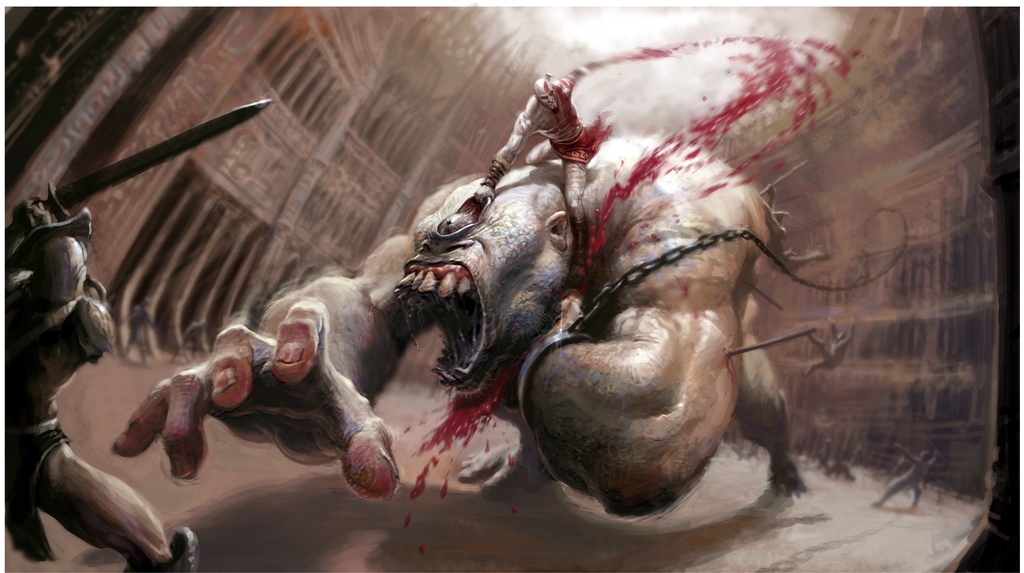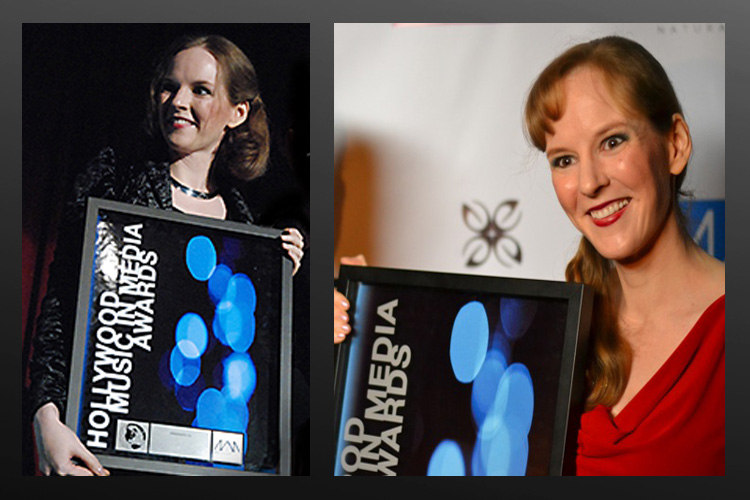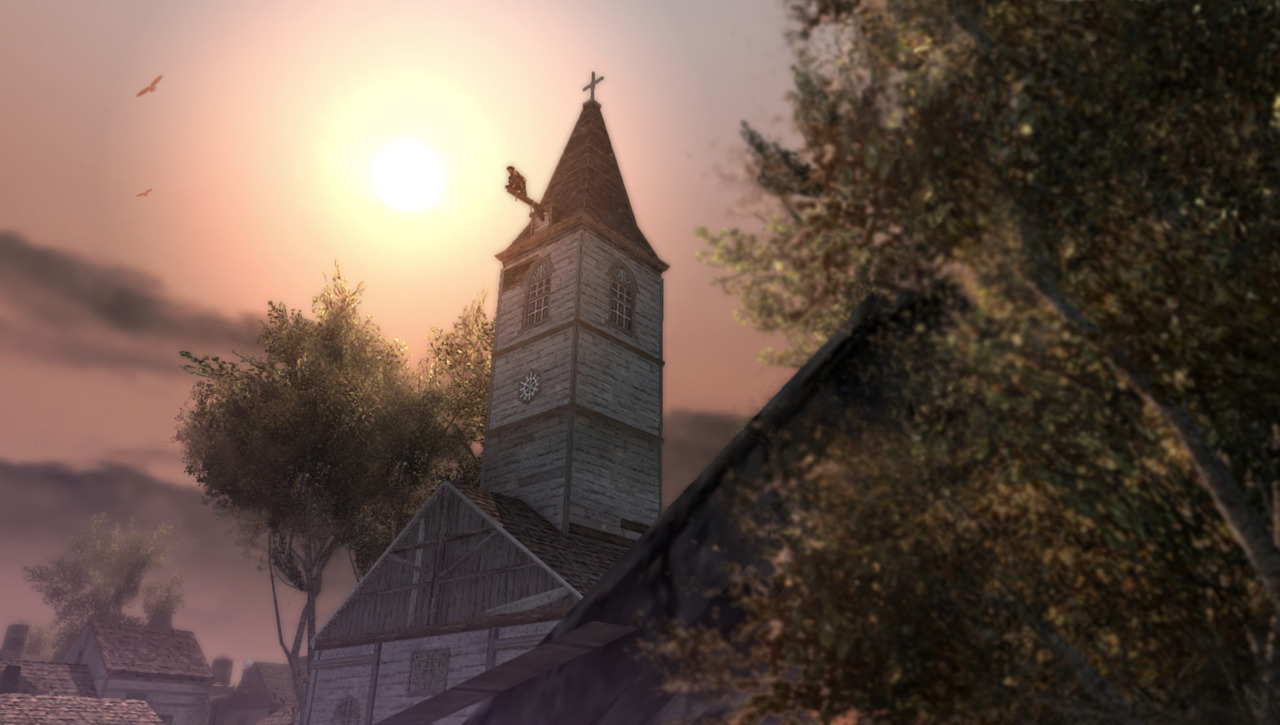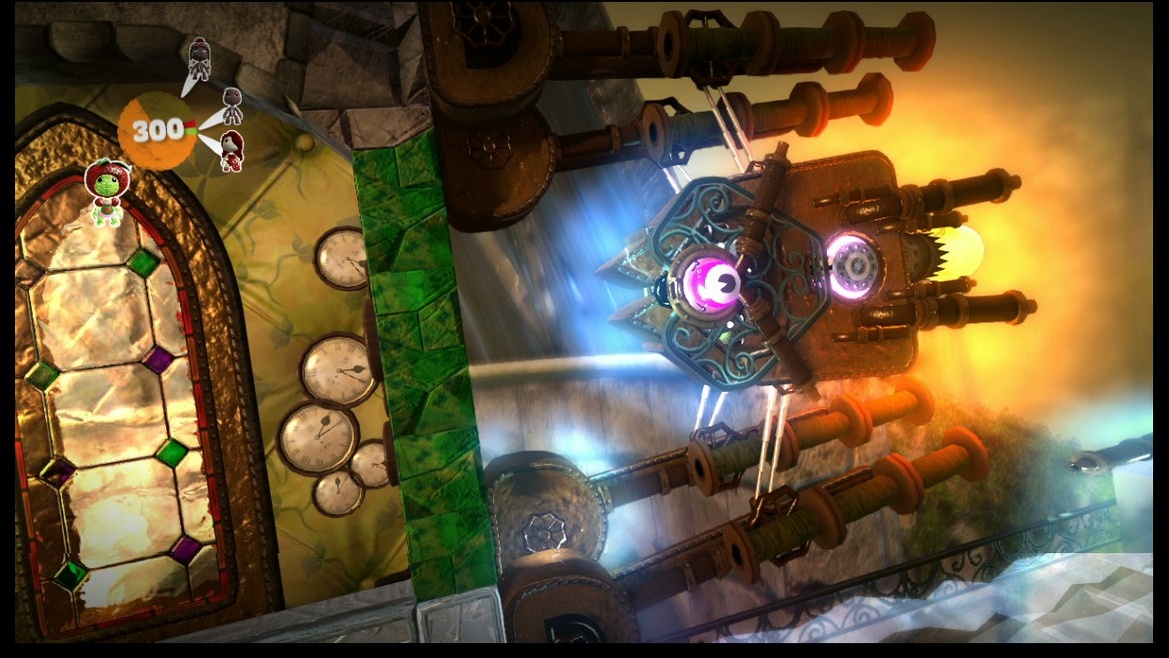From God of War to Assassin's Creed: The Musical Journey of Winifred Phillips
Composer Winifred Philips shares the story of how her passions led to a prominent career in game music.
Jeremy Soule. Nobuo Uematsu. Jesper Kyd. If you play video games regularly, you probably recognize these names in much the same way filmgoers know names like John Williams or Howard Shore.
Yet chances are you may not know the name Winifred Phillips, though you have probably heard her music: her work for the PlayStation 2 classic God of War was the composer’s first venture into video game music. It was a remarkable debut, though Phillips was hardly a neophyte musician. As any composer could tell you, major breakthroughs are almost always the result of many years of hard work and dedication, and Phillips started--as many musicians do--in public school. We caught up with Phillips recently, seeking insight into the process that took her from young music lover to professional video game composer.
“I always loved music, and I was lucky enough to go through the public school system when music programs were valued and well-funded,” begins Phillips. “I had so many wonderful music teachers. I definitely looked up to them, and I'd count the minutes until my next music class would begin. In middle school, my band teacher found out that I was a quick learner and got into the habit of giving me a new instrument to learn whenever there was a gap in one of his ensembles. I got to play all sorts of music and all different kinds of instruments.”
“Now, as a composer, I'm tremendously grateful to have had that experience when I was young. It taught me a lot of respect for the unique musicianship involved in coaxing music from the many different instruments of the orchestra. Plus, it was during that time that I first discovered I wasn't satisfied with performing music, but that I wanted to create it too. During rehearsals I kept itching to improvise, to stray from the notation and try new things. That impulse pushed me towards composing music of my own.”
Phillips found inspiration from many modern works over the years, and cites composer John Adams, best known for his postminimal orchestral work Short Ride in a Fast Machine, as a major influence. And she notes that Adams isn't the only musician whose creativity motivates her. “I find that kind of inventiveness really inspiring, and I've heard it in so many different kinds of composers and songwriters, from Ben Charest to Corvus Corax to Propellerheads. Since my projects have been so varied in terms of their musical style, I like to listen to all kinds of music, and I find that there are sparks of genius to be heard in every musical genre.”
"I think that changing things up on a regular basis has helped me keep growing as a composer."
Music was not the only source of entertainment in her life, however. “I’d been a gamer for as long as I could remember,” says Phillips. But she didn’t always intend to compose for games, and in fact, was working in an entirely different medium before that. “When the God of War project came along, I’d been working for a number of years as the composer for a drama series on National Public Radio. The Radio Tales series adapted classic stories and novels for the radio. Winnie Waldron, the series’ producer and script-editor, hired me to compose the music that would underscore the dramas from beginning to end. The programs were adaptations of stories like Beowulf, The Time Machine, and The Island of Dr. Moreau, so as a gamer and a lover of speculative fiction I felt right at home.”
Phillips loved the project, but she says it also felt like boot camp. “It was tough, unforgiving, and unrelenting--the deadlines were brutal, and the music had to carry most of the burden of telling the story and emotionally involving the audience. When I first started on that series, I hardly had any idea of what I was doing. By the last season of the series, I had a much better understanding of my job as a composer for media--the role the music needed to play, and how it could strongly enhance the effectiveness of a production. The learning process never really stops--with every project, I try to do my job better.”
Ultimately, Phillips’ hard work was recognized. The series won four Gracie awards, which honor programming created by and for women, as well as an International Radio Festivals WorldMedal. But Phillips had been thinking of expanding into video game music as a side project, and her demos had been circulating in the industry for a few years before her big break. She says, “When Sony Computer Entertainment America contacted me about God of War, the Radio Tales series was just winding up production. In 2004, I met with an SCEA music supervisor during E3 to talk about the team of composers that were being assembled for the project, and soon after that I was hired to compose music for God of War. I asked Winnie Waldron to make the leap into video games with me as my music producer, and we’ve worked together on every project since then.”
And thus Phillips' love for music and love for games merged, thrusting her down a new career path. But not every game can be as popular as God of War, and though she would lend her talents to other major franchises (she worked on Little Big Planet 2, for example), Phillips also contributed to lesser-known games like The Maw, and even to family-oriented games like Shrek the Third. These games couldn’t be more different from God of War, not just in how they play, but in how they sound. It’s hard not to wonder: is it difficult for a composer to quickly switch from one musical idiom to another?
“I try not to stretch myself too thin,” says Phillips, “but I do enjoy challenges. Switching from one musical genre to another is a great way to stay fresh and expand my skillset as a composer. I did Shrek the Third right after I composed the score for The Da Vinci Code video game, which was a very serious contemporary thriller with religious overtones. After the Shrek project I jumped right into the Speed Racer video game, which combined electronica with jazz, funk and guitar-driven rock. I think that it’s good for me to stay flexible and try to become knowledgeable in a lot of different musical styles. It keeps my day-to-day work continually interesting for me. I’ve had a chance to explore a lot of divergent musical genres in my game projects, from the world-fusion of Spore Hero to the epic orchestral fantasy of Legend of the Guardians. I think that changing things up on a regular basis has helped me keep growing as a composer.”
This isn’t the only challenge Phillips has faced, however: she also wrote the score for 2012’s Assassin’s Creed III: Liberation, an entry in a series revered for its evocative soundtracks. How do you retain your musical voice when contributing to a legacy defined by the music of other composers? Phillips was certainly aware of the high expectations. “I definitely listened to the music from the previous installments of the series, not so much to derive inspiration as to understand those techniques that the fans would consider to be iconic of the series as a whole. I was constantly aware of the large fan base of the Assassin’s Creed series, and their high expectations for the musical scores of these games. I didn’t want to disappoint them. While I knew that the setting of Colonial America would require a musical approach that diverged significantly from the previous entries in the series, I also wanted to employ instrumental approaches that would hearken back to the earlier games. For instance, I continued the use of synths, which had been established from the very beginning of the series.”
Yet while working on Assassin’s Creed III: Liberation, Phillips never sacrificed her own style, and more importantly, allowed the game itself to be her primary stimulation. She says: “For most of my work on Assassin’s Creed III: Liberation, I concentrated on the demands of the game for which I was composing music. Liberation needed to combine techniques and instruments from traditional African music with the classically baroque elegance of an affluent French society in the 18th century, and these styles had not been explored in previous Assassin’s Creed games. I focused on melding this classically European approach with strong world-music influences. In this sense, my music from Liberation had more in common with one of my previous game projects, Legend of the Guardians, which also combined classical and world-music influences. My music from that project won a Hollywood Music in Media Award in 2010, and I just won another HMMA Award for the music of Assassin’s Creed III: Liberation--so both projects were very exciting and fulfilling for me.”
Unsurprisingly, technology has changed the way composers bring their imagination to life. In the last 25 years, old-fashioned manuscript paper has been replaced by computers and expensive programs that allow musicians to quickly turn ideas into fully-orchestrated passages performed by virtual musicians. Phillips utilizes a number of programs vital to a composer’s livelihood, with Avid’s Pro Tools software leading the charge. But she’s also aware that synthesizers can’t always be a substitute for a live musician.
“Technology seems to have a way of challenging artists to find new forms of creative expression and expand the possibilities of their art,” Phillips says. “However, there can never be an actual replacement for live human beings in any art. My music for Assassin’s Creed III: Liberation, for instance, includes a wide variety of live musicians, including accomplished African percussionists and vocalists, flautists playing authentic Mexican clay flutes, as well as my own live vocal performances. I try to incorporate live instrumental performances into all my projects.”
"Music has the ability to intensify the game-playing experience in many different ways."
Technology has opened doors that didn’t exist for composers before--and in turn, video game composers are finding mainstream recognition. Journey composer Austin Wintory was recently nominated for a Grammy award for Best Score Soundtrack For Visual Media, marking the first time a composer was recognized for his or her work in a game. Composers that work in games have been recognized by the Grammys before; Civilization IV composer Christopher Tin has won multiple Grammy awards, for example. But never before has a nominated work been recognized for its appearance in a video game, making Wintory a trailblazer. And Phillips is excited to see where mainstream success can take her and her colleagues.
“I’m certainly eager for the work of game composers to be recognized--I think game music has been getting mainstream recognition more and more in the past few years,” she says. “It’s a very exciting time to be a game composer! The Video Games Live touring show routinely sells out in large venues all over the world, and game music albums are achieving impressive sales and climbing the Billboard charts. I’ve had several of my game music soundtracks released commercially, the latest being the Assassin’s Creed III: Liberation soundtrack, and the game industry continues to support the music of games by releasing soundtracks and drawing attention to the music in their latest releases. Actually, I think I’d most like to see the game industry as a whole achieve more widespread mainstream recognition as a serious community of artists producing meaningful work. That kind of recognition would be exciting for all of us!”
Where does leave the up-and-comer, though? As Phillips knows, breaking into game music requires specific knowledge and talents, and even if you’re already writing, it can be difficult to understand just how profound the differences are between games composition and composition for other media. The best way to learn is to experiment--and to use widely available resources to your advantage. Says Phillips, “A good introduction to [today’s various interactive models] can be attained by reading articles in Game Developer magazine and on sites such as Gamasutra.com. There are also several books on game audio that include information about interactive musical techniques.”
Ultimately, however, Winifred Phillips’ transition from game music fan to recognized composer gives hope to aspiring composers everywhere. “When I started out, I was in such awe of the people who make games. As a long-time gamer, I’d put game developers on a pedestal, and that made me very nervous when I eventually began to work with them. While my respect for the members of game development teams has only grown over the years, I now understand that they all struggle daily to achieve their artistic goals, just as I do. Moreover, I understand that my music can help them create the game they want to create. Music has the ability to intensify the game-playing experience in many different ways. That’s something I now try to keep in mind when I’m writing music for games.”
'Got a news tip or want to contact us directly? Email news@gamespot.com




Join the conversation